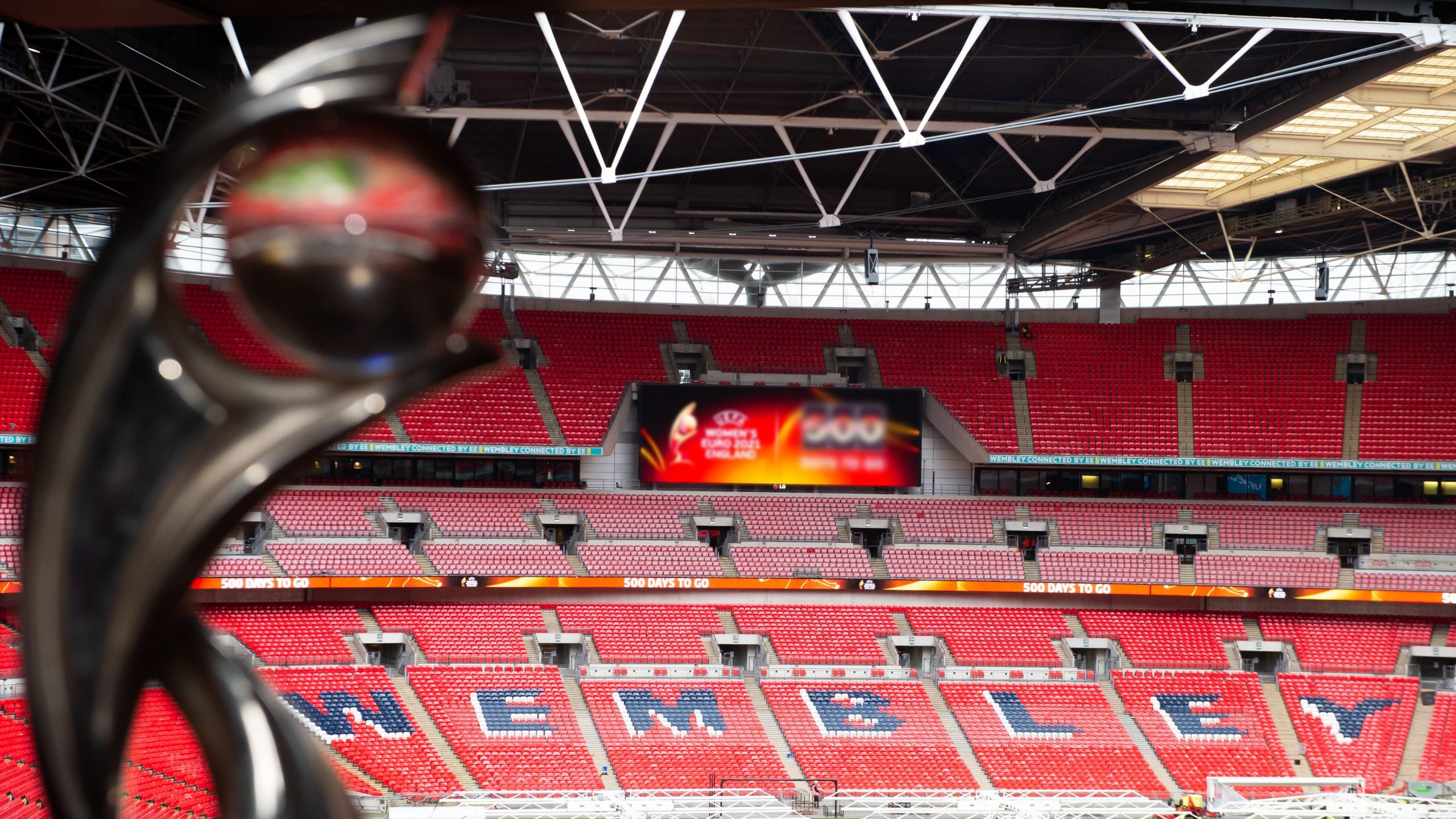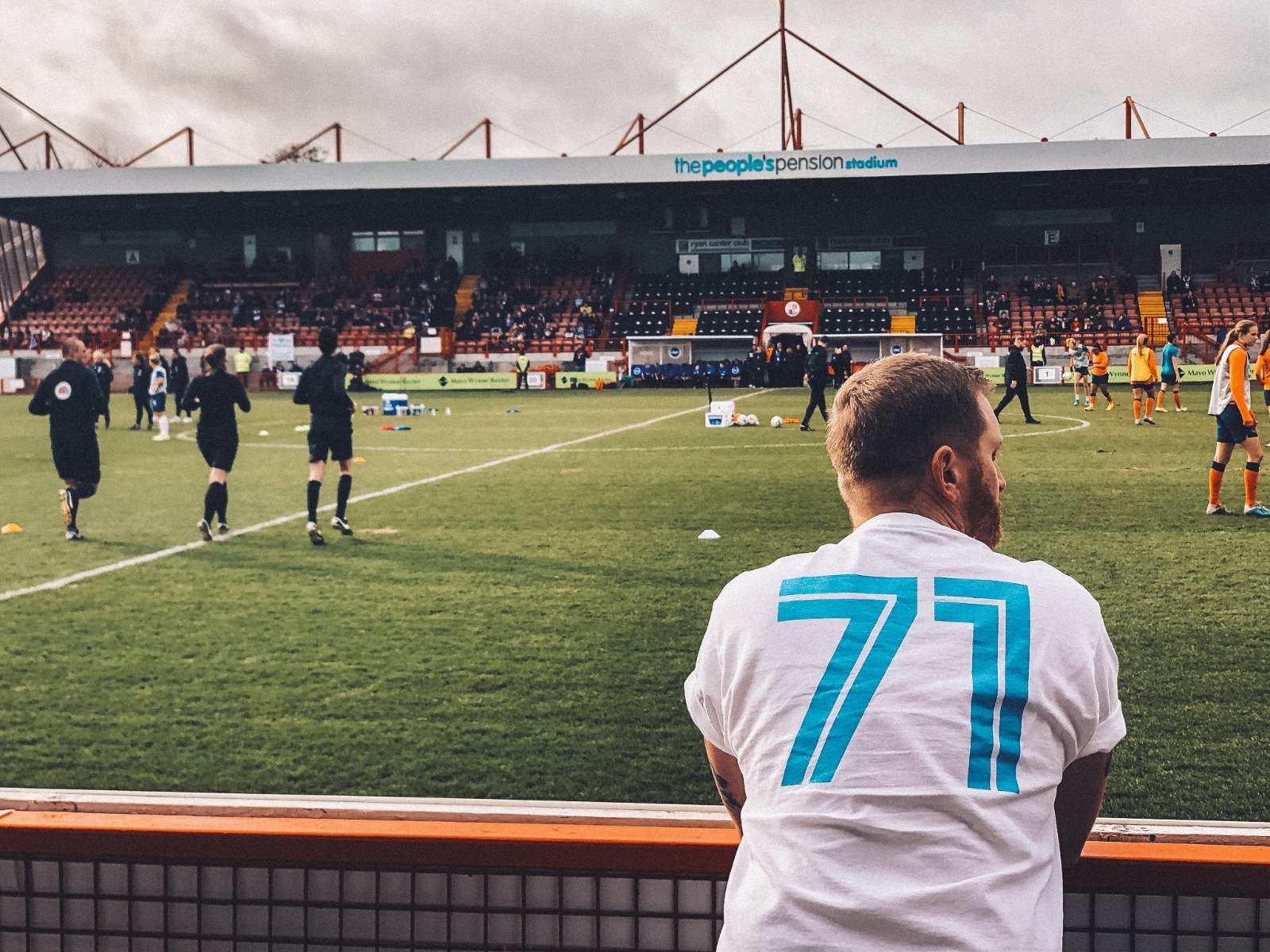This week has seen fans able to attend games again. Sadly this was too late for women’s football fans to cheer on their own teams, apart from Chelsea’s delayed FA Cup tie with Everton tomorrow. Things are looking and feeling more positive and the FA and UEFA are have today shared that their Euro 2022 ticketing roadmap where they are seeking full stadiums for the competition.
With over 700,000 tickets available across the 10 venues in nine host cities, an unprecedented number of fans will be able to experience the biggest women’s European sport event ever from 6 – 31 July 2022. The ambition is to set a record attendance for a UEFA Women’s EURO fixture [currently 41,301, 2013 Final] at the tournament’s opening game at Old Trafford. It is then the aim to break this record once again for the Final at Wembley Stadium, where it is hoped a sell-out crowd will fill the national stadium, surpassing the current European record for a women’s game of 80,203 set at London 2012.
The tournament will see a family of four [two adults and two children] able to watch some of the World’s best players from just £30. With over 90% of England’s population within two hours of a game, the tournament will truly belong to everyone and allow fans from all areas the chance to play their part in what will hopefully be a record-breaking summer for the women’s game.
The first chance supporters will have to apply for tickets is on 13 July 2021, via the Pre-Sale, presented by Visa. To ensure this priority access, fans can register their interest now at UEFA.com/womenseuro/ticketing.
Together with UEFA, as a nation and host a clear ambition is held to deliver the biggest women’s football event in UEFA history, which is used to inspire long-term, sustainable positive change in women’s and girls’ football. Host cities are developing local strategies to make transformational changes in their communities which are designed to create a blueprint for the rest of the country and Europe.
The legacy programme shared today sets out the plans across the nine host Cities to deliver 500,000 new football opportunities to engage women and girls by 2024. Nationally, The FA are committing to several measures, such as ensuring that 75% of schools provide equal access for girls to play football within PE lessons and 75% of all grassroots football clubs offer at least one girls’ team with 1,000 clubs offering a complete accredited pathway for girls.
Across the nine host cities these measures will result in 120,000 more girls playing in schools and clubs and 20,000 more women playing for fun and friendship by 2024. In addition, 300 newly FA-qualified female coaches will double the number currently involved across the host cities, with 350 new FA-qualified female referees officiating to ensure increased female participation in all areas of the game. Find out more about how the tournament will help drive positive change within girls and women’s football at www.TheFA.com/WEURO2022/legacy.

Baroness Sue Campbell, EURO 2022 Board Member and Director of Women’s Football, The FA, said: “It has been a challenging year in so many ways, with mental and physical wellbeing hugely affected by the pandemic. The tournament and the city legacy programmes are a very real opportunity to positively change the impact restrictions have had on our activity levels and to bring us together through football regardless of our role we play within the game.
“The long-term legacy ambitions will unlock the game for more women and girls across host cities and beyond with equal access for all girls to play football in school and clubs. We will also be working to create a more diverse workforce of coaches, referees and local leaders to deliver and organise football for their communities. Our vision will ensure inclusive, safe and welcoming environments for every woman and girl to play competitive or recreational grassroots football – irrespective of ability, age or ambition.
“This ambitious legacy programme could not be possible without the ongoing commitment to the development of the women’s game from UEFA, The FA, our host cities, councils and supporting organisations and I would like to thank them for all their hard work to date.
Nadine Kessler, UEFA Chief of Women’s Football, said We are going to fill stadia, sell-out matches, fans are going to come from all over England, the whole UK, Europe and beyond. And when we have achieved this, we have left the impression that was needed to amplify the efforts that have already gone into leaving a legacy in England and beyond.
“The legacy, for all of us, won’t stop with the final whistle at Wembley stadium on 31 July 2022. I am delighted to see that The FA has found great partners for their legacy programme and are treating this topic with a long-term vision to bring women into the game and provide environments they can thrive in.”
The opening match of the tournament takes place at Old Trafford on 6 July 2022. The Semi-Finals will be held at Sheffield’s Bramall Lane and Milton Keynes’ Stadium MK ahead of the showcase Final at Wembley Stadium on 31 July 2022. Each venue, other than Old Trafford and Wembley, will host a minimum of three games each during the tournament.
The Pre-Sale, presented by Visa will run from 13 July until 10 August 2021. As part of the Pre-Sale, Visa cardholders will be given the opportunity to be among the first to purchase their tickets for the tournament, alongside fans that pre-register now at UEFA.com/womenseuro/ticketing. The public ballot will open following the draw which takes place on 28 October 2021 live on BBC, with tickets going on general sale from mid-February 2022.
Although, we do have to be sensible and cautious so I am relieved to hear that there are fall back plans with a refund policy in place if fixtures are postponed, cancelled, have reduced capacity or a change of venue is introduced due to COVID. A ticket resale platform will be available in 2022 for ticket holders to use and re-sell their tickets at face value pre-tournament to another fan. More will be communicated in the coming months.









